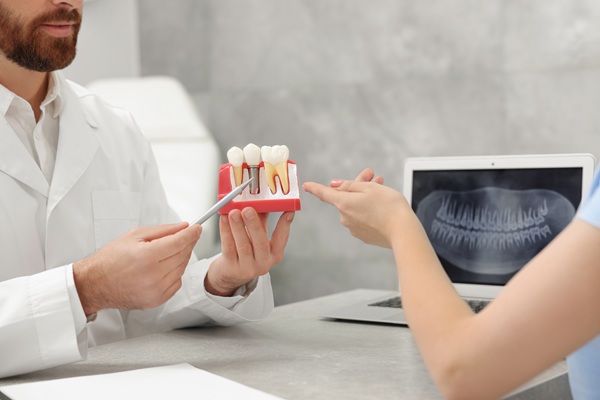3 Common Oral Surgery Procedures

When a family dentist discusses oral surgery, some patients experience dread and anxiety about the cost and pain of such procedures. Read on to learn more about oral surgery. Many patients are unaware that dental surgery is common and involves treatments that address problems that affect many individuals. Dental surgery is often performed as an outpatient operation, and patients may return to regular activities within a few days.
3 Commonly performed oral surgery procedures
The most frequent kinds of oral surgery are treatments that are so common that many people do not think of them as dental surgery. They include:
1. Root canal treatment
The most frequently performed oral surgery is perhaps a root canal treatment. Every year, millions of teeth are treated, sparing many from extraction and alleviating pain and sensitivity. Root canals are usually painless and very efficient in relieving pain.
The dental pulp lies underneath a tooth's enamel and contains blood vessels and nerve endings. Bacteria penetrate the tooth when it is decaying and destroy the pulp. Tooth discomfort, swelling, and possible neck or jaw pain are all symptoms of infected pulp. A dentist can treat this by removing the infected pulp and the decaying part of the tooth via a root canal procedure.
2. Dental implants
A dental implant is a replacement for a tooth's roots. The process involves using titanium posts to attach crowns to the jawbone. These metals are chosen because they are light and biocompatible, meaning they integrate well with body tissues. Dental implants are used to replace teeth that have been lost due to factors such as decay, infection, oral cancer, and poor oral hygiene habits.
Dental implants are a more involved procedure because the bone must fuse correctly with the metal post before the replacement tooth can be installed. The integration process can take between three to six months, after which the dentist will attach a dental restoration such as a crown or bridge to finish the procedure.
3. Wisdom tooth extraction
Wisdom teeth are the third molars, which typically appear between the ages of 17 and 25. Wisdom teeth that do not have enough space to develop may become impacted, causing discomfort, mouth infections, and other dental issues. Even if impacted teeth are not problematic, dentists often recommend wisdom tooth removal as a preventive measure.
The extraction of wisdom teeth is an outpatient treatment and requires some time for recovery. The wisdom teeth are extracted via surgical incisions, and the extraction site is stitched up afterward to ensure healing. To prevent excessive bleeding or blood clots, it is critical to follow the dentist's instructions during the healing process.
The bottom line
Whether you need minor restorative oral surgery or significant dental treatment, your family dentist should be a major part of your oral health journey. Taking a proactive approach to your oral health may help you avoid tooth loss and major oral surgery.
Request an appointment here: https://www.healthysmilesgeorgetown.com or call Healthy Smiles Dentistry Georgetown at (512) 864-9010 for an appointment in our Georgetown office.
Check out what others are saying about our dental services on Yelp: Oral Surgery in Georgetown, TX.
Recent Posts
Oral surgery is a broad term that covers a wide variety of procedures related to teeth and gums. There are a number of reasons dentists may recommend dental surgery for a patient. Most often, they do so if the pain or discomfort a patient is feeling or an injury or infection goes deep enough into…
The idea of oral surgery can be intimidating, especially when your dentist recommends it. It is easy to understand the extra layer of anxiety that happens when the dentist goes on to refer you to a specialist.As you picture an unfamiliar person coming at your mouth with sharp instruments, you ask yourself: Do you really…
Dental implants are often used to replace individual teeth but can also offer multiple teeth replacement options. Such options include cantilever bridges, implant-supported bridges and implant-supported partials.Depending upon the condition of the person's gums and jawbone, a single implant can sometimes be placed to support two adjacent teeth. More commonly, multiple implants are used to…
Dental patients who are planning a visit to an implant dentist may be unfamiliar with the details regarding implants. It is crucial to learn as much information as possible before scheduling an appointment for this surgical procedure.A dental implant is a common permanent tooth replacement option that can be highly beneficial to a patient’s health…


